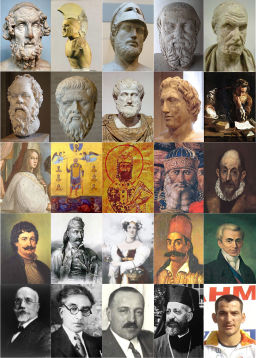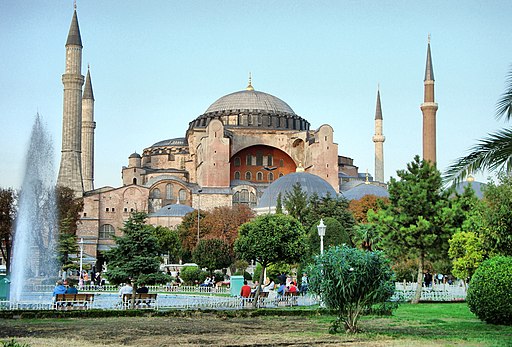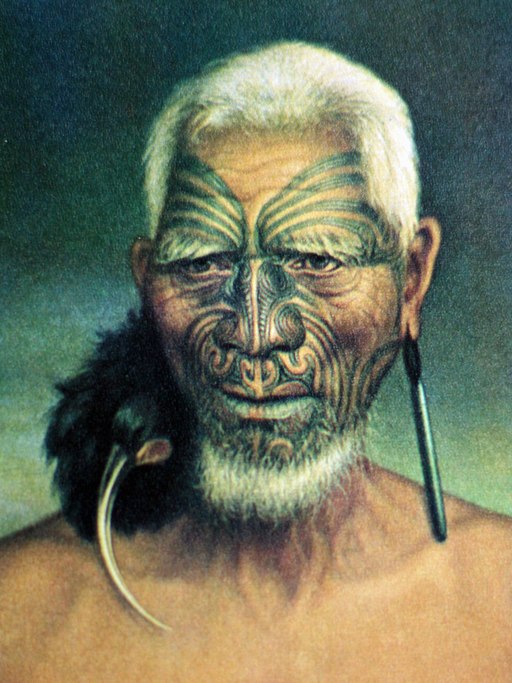
“The Birth of Venus” by Sandro Botticelli depicts the goddess Venus emerging from the sea after her birth fully grown. Venus is the Roman goddess of love, beauty, desire, fertility, prosperity, and victory.
In mythology, she was the mother of the Roman people through her son, Aeneas, who survived the fall of Troy and fled to Italy. Venus was central to many religious festivals and revered in the Roman religion.
The Romans adopted Venus from the myths of her Greek counterpart Aphrodite for their art and literature.
In the later classical tradition of the West, Venus becomes one of the most famous figures of Greco-Roman mythology as the embodiment of love and sexuality.
In Botticelli’s masterpiece, the newly-born goddess, Venus stands nude in a giant scallop shell.
On the left, Zephyr, the god of high winds, and Aura, the personification of a light breeze, are blowing Venus towards the shore.
Their wind is also blowing Venus’s hair and the clothes and hair of the other figures to the right.
At the right is the Hora of Spring, one of the Greek goddesses of the seasons, holding out a rich cloak to cover Venus when she reaches the shore.
Her landing spot represents either Cythera or Cyprus, both Mediterranean islands regarded by the Greeks as territories of Venus.
There are many competing interpretations by art historians about the themes and symbolism in this painting.
There are also alternative identifications for the two secondary female figures in this composition.
However, the primary appeal of this art is the visual beauty of the masterpiece. The symbolism adds to the mystery and allure of this painting.
Sandro Botticelli
Botticelli was an Italian painter of the Early Renaissance who belonged to the Florentine School under the patronage of Lorenzo de’ Medici.
His mythological masterpieces are his best-known works today. However, he painted a range of religious subjects and portraits.
He and his workshop were primarily known for their many beautiful Madonna and Child paintings.
He lived most of his life in the same neighborhood of Florence. Botticelli’s only significant time elsewhere was the few months he spent painting in Pisa in 1474 and his work at the Sistine Chapel in Rome in 1481–82.
Nude Art
The nude figure is a tradition in Western Art and has been used to express the ideals of beauty and or other specific human qualities.
Ancient Greek Art is unique for its development of naturalistic and idealized depictions of the human body, in which mainly the nude male figures were the focus of artistic innovation.
During the Middle Ages, the Christian emphasis on chastity and celibacy discouraged depictions of nakedness. The Greco-Roman nudes were transformed into symbols of shame and sin, weakness, and defenselessness.
Completely unclothed figures were rare in medieval art, except with the notable exceptions being Adam and Eve and the damned in Last Judgement scenes.
The rediscovery of classical culture during the Renaissance restored the nude to art. Donatello, in the 1440s with his statue of the Biblical hero David, made the first freestanding nude statue since antiquity.
In 1504, Michelangelo completed his massive David, followed by the nudes paintings in Michelangelo’s Sistine Chapel ceiling to re-established a tradition of male nudes in depictions of Biblical stories.
The female nude returned to Western art in 1486 with “The Birth of Venus” by Sandro Botticelli, who adopted the pose of the classical Venus de’ Medici.
The Birth of Venus
- Title: The Birth of Venus
- Italian: Nascita di Venere
- Artist: Sandro Botticelli
- Year: 1485
- Dimensions: L: 278.5 cm (109.6 in). H: 172.5 cm (67.9 in).
- Museum: Uffizi Gallery
Sandro Botticelli
- Name: Sandro Botticelli
- Birth Name: Alessandro di Mariano di Vanni Filipepi
- Born: c. 1445 – Florence, Republic of Florence, (now Italy)
- Died: May 17, 1510 (aged c. 64) – Florence, Republic of Florence
- Nationality: Italian
- Movement: Italian Renaissance
- Notable works:
- Primavera
- The Birth of Venus
- Venus and Mars
- Adoration of the Magi
- The Virgin and the Child in a Niche
- The Story of Lucretia
- Mystic Nativity
- The Trials of Moses
Botticelli – The Birth of Venus
Botticelli’s Venus. The Making Of An Icon
A Tour of the Uffizi Gallery
- “The Birth of Venus” by Sandro Botticelli
- “Primavera” by Sandro Botticelli
- Venus de’ Medici
- “The Battle of San Romano” by Paolo Uccello
- “Adoration of the Magi” by Botticelli
- “Judith Slaying Holofernes” by Artemisia Gentileschi
- Self-Portrait by Lucas Cranach the Elder
- Self-Portrait by Hans Holbein the Younger
Who Inspired Botticelli’s ‘Birth Of Venus’
A Tour of Rome Museums and Historical Sites
- The Vatican Museums
- Capitoline Museums
- St. Peter’s Basilica
- National Roman Museum
- Galleria Borghese
Florence Museums
- Uffizi Gallery
- Academy’s Gallery
Milan Museums
- Santa Maria Delle Grazie
- Sforza Castle Museums
- Brera Art Gallery, Pinacoteca di Brera
- Museo Poldi Pezzoli
Bologna Museums
- The Archaeological Civic Museum (MCA) of Bologna
- Sanctuary of Santa Maria della Vita
BOTTICELLI: The Birth of Venus – Uffizi Gallery
Botticelli’s Birth of Venus
~~~
“Venus favors the bold.”
– Ovid
~~~
Photo Credit: Sandro Botticelli [Public domain], via Wikimedia Commons
Popular this Week








 Sponsor your Favorite Page
Sponsor your Favorite Page SEARCH Search for: Search Follow UsJoin – The JOM Membership Program
Sponsor a Masterpiece with YOUR NAME CHOICE for $5
Share this:
- Tweet
